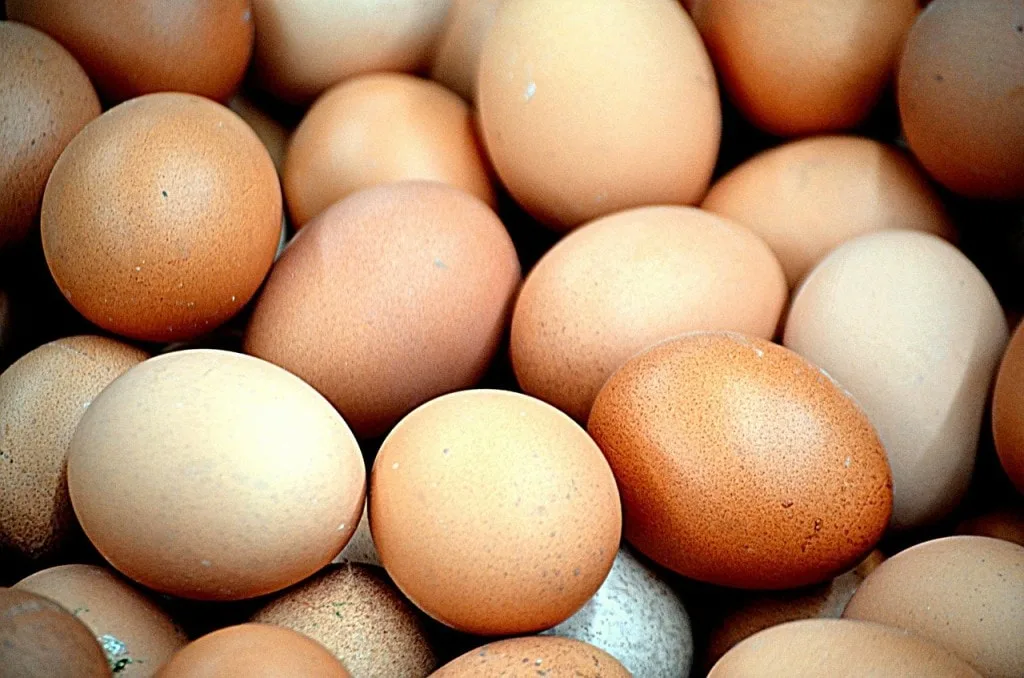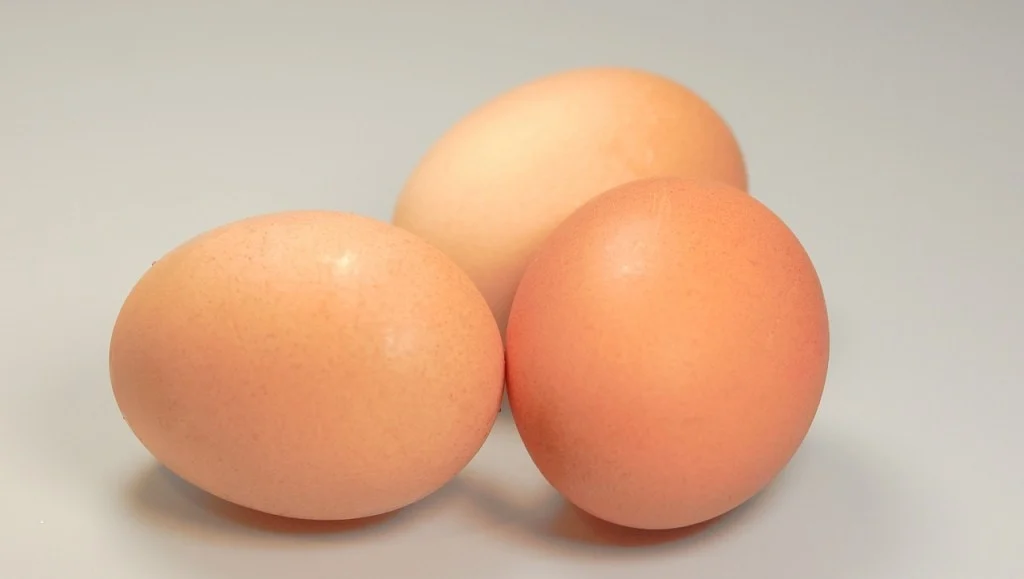You’ve probably seen a ton things written on your egg carton and wondered what the heck do those egg carton labels mean?
Turns out some of these egg labels are important to know, and separate higher quality eggs from lesser quality ones.
But not all egg carton labels are created equal! Some of them are clever marketing ploys designed to mislead consumers into believing they are paying a premium for a better product.
Don’t get bamboozled at the grocery store!
Before you “shell” out extra (see what I did there) for fancy eggs, make sure it’s worth your money and that you are getting a superior product.

Egg carton labels to look for:
Pasture raised eggs
If the label says “pasture-raised eggs”, this means that eggs were harvested from chickens that have access to a pasture space.
Chickens tend to be raised in more humane conditions, allowed outside time to do chicken things and live a good chicken life.
Pasture raised are some of the best eggs (and therefore most expensive) because allowing chickens room to roam can be expensive.
Fortunately though, for a price, you can feel better knowing the chickens that laid those eggs had access to the foods that are natural to their bodies, producing more flavorful, nutrient-rich eggs.
Certified Humane eggs
This label goes hand in hand with pasture-raised eggs. Certified Humane seals appear when chickens are raised in humane conditions which of course includes pasture time.
Producers who want to be Certified Humane have to go through rigorous steps throughout the animals entire life to meet exacting criteria for the humane treatment of livestock.
The highest standards of ethical and humane treatment of the animals is required to receive and maintain this certification.
USDA Organic eggs
This is where the waters tend to muddy a little bit. Organic eggs come from chickens who must be fed grains that were grown without pesticides, cannot be raised in cages and must still have outdoor access.
However, just because a chicken is kept cage-free and have outdoor space, does not make them pasture raised.
An organic-cage free chicken may be kept in a pen outside without actual access to a pasture.
Free-Range eggs
This is another egg carton label that is often misunderstood. Free range eggs are also not the same as pasture-raised eggs.
Free-range chickens are not required to have pasture access, nor are they required to be fed organic, pesticide free.
Free-range chickens are not kept in cages and must have outdoor access, but are often kept in large, cramped spaces.

Egg carton labels that are mostly bogus:
“Natural” eggs
Here’s where the marketing ploys start to kick in. “Natural” eggs are just eggs. All eggs are natural. Unless it’s an egg substitute, an egg is an egg is a natural egg.
People assume that natural is synonymous with organic and that’s a common misconception.
This “natural” label is designed to make the consumer feel like they are getting something special, when really this is just any old egg.
“Farm fresh” eggs
Another common trick is to put “farm fresh” or to use a company name with the word “farm” in it.
This is another label with pretty much no meaning. Any place that has livestock is a farm, even if it’s a big factory farm.
This label is pretty much meaningless, but is designed to make you feel warm and fuzzy and nostalgic for the days gone by where you got eggs from your local farmer.
“Hormone free” eggs
The “hormone free” label on egg cartons is another marketing ploy.
ALL eggs sold in the United States are legally required to be hormone free.
Any chickens that produce eggs or are going to be eaten are not allowed to be given hormones.
Rest assured that whether or not it’s on the egg carton label, your eggs are always hormone free.
Can you freeze eggs?
Now that you’re an expert on egg labels you can stock up on eggs when the prices are good and know that you’re not overpaying for BS marketing tricks!
But can you freeze eggs when you find them for a good price?
You sure can!
Check out this post on how to freeze eggs so that you can use them later for recipes!
